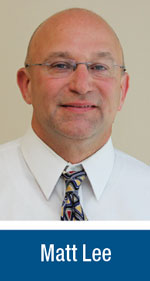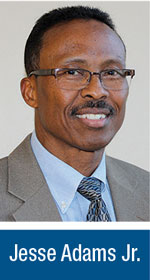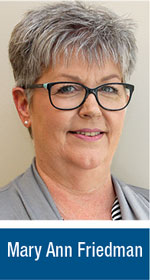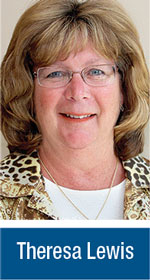NJSBA’s field service representatives (FSRs) serve as a school board’s personal link to the Association. When board members have a question, their first call is usually to their field service rep, who can either answer the question, or reach out to the right person within NJSBA to provide assistance.
Not only do the FSRs have a broad knowledge of school governance and boardsmanship best practices, but each and every current field service rep was once a New Jersey school board member – so they have experienced many of the same concerns that current board members may have.
Below, NJSBA’s field service representatives share some of the questions they have fielded from board members around the state – and their answers to those questions.
Do you have a different question? Feel free to reach out to your board’s FSR. If you’re not sure who that person is, the NJSBA website features an “FSR Finder” at staging.njsba.org/services/field-services. Simply type your district name in, and your FSR’s name and contact information will pop up.
Our meetings run too long. How can we make our meetings run more quickly and efficiently?
 Meetings that run too long and do not efficiently utilize the time of board members and district staff can not only drain the board of energy and rob it of its esprit de corps, but it can also sidetrack the critical work that the district is looking to accomplish.
Meetings that run too long and do not efficiently utilize the time of board members and district staff can not only drain the board of energy and rob it of its esprit de corps, but it can also sidetrack the critical work that the district is looking to accomplish.
One key to running better meetings is to make sure all board members do their homework. Obviously that means that members commit to putting in the time to understand the upcoming discussion items and motions. The meeting is not the time for members to “catch up” on things. It is the place to have meaningful, informed discussion and disposition of the board’s business. And it’s not just about reading. Discussion of items with the superintendent, business administrator, committee chair, or board president can also be part of a thorough vetting of issues. To facilitate this, the central office needs to be diligent about delivering information to members with sufficient time to review before the meeting.
Another tactic is to use the committee system to do the really “deep-dives” into issues, and charge the committee with producing comprehensive reports to the full board at workshop meetings. These summaries should address the kinds of FAQ-type questions you might expect from the rest of the board, typically the basics such as who, what, when, where, why, and how. Ideally, these summaries should come to members in the pre-meeting distribution to allow for proper study and questions.
Adherence to orderly discussion procedures, keeping focused on just the issues, and limiting side conversations, are all also extremely helpful. And finally, resist the temptation to try to over-analyze the operational aspects of issues. The execution aspect of any issue is not your role. That’s for your CSA and the administration to handle. Your role is the “what.” Their role is the “how.”
My board president requires that all board member communication with the superintendent or business administrator must go through him first. Our board members hesitate to question that requirement. Is managing the communication between board members and the superintendent and business administrator a role of the board president?
 The roles and responsibilities of a board president are defined in the bylaws section of the school district’s policy manual. The bylaws are developed by the board of education and specifically address the operational procedures of the board (i.e. how board meetings are conducted; minutes; agendas; committees, etc.). Bylaws provide the guidelines and processes for how the board of education will conduct its board business and governance responsibilities. Most, if not all, boards in New Jersey have a bylaw that addresses the roles and responsibilities of the board president and vice president. By statute, there are several legal duties placed on board presidents, such as (but not limited to) certifying the payroll for staff employees and calling special meetings of the board. These duties should be reflected in the bylaws. But other than the legal responsibilities of the board president, all other roles and responsibilities are determined by the full board and documented in the bylaws. For example, traditionally, the board president is the primary spokesperson for the board of education, but that is not a legal requirement. It is a responsibility that the full board has chosen to give to the board president and should be documented in the bylaws. Requiring that communication between board members and the superintendent or business administrator first go through the board president is not something that is required by statute, but it may be in your board’s bylaws.
The roles and responsibilities of a board president are defined in the bylaws section of the school district’s policy manual. The bylaws are developed by the board of education and specifically address the operational procedures of the board (i.e. how board meetings are conducted; minutes; agendas; committees, etc.). Bylaws provide the guidelines and processes for how the board of education will conduct its board business and governance responsibilities. Most, if not all, boards in New Jersey have a bylaw that addresses the roles and responsibilities of the board president and vice president. By statute, there are several legal duties placed on board presidents, such as (but not limited to) certifying the payroll for staff employees and calling special meetings of the board. These duties should be reflected in the bylaws. But other than the legal responsibilities of the board president, all other roles and responsibilities are determined by the full board and documented in the bylaws. For example, traditionally, the board president is the primary spokesperson for the board of education, but that is not a legal requirement. It is a responsibility that the full board has chosen to give to the board president and should be documented in the bylaws. Requiring that communication between board members and the superintendent or business administrator first go through the board president is not something that is required by statute, but it may be in your board’s bylaws.
Bylaws and policies are reaffirmed every year at the board’s reorganization meeting. So it is very important that all board members are thoroughly familiar with their board’s bylaws to ensure that your board is operating in the manner that you, as a board, have agreed upon and documented.
Why can’t I visit the school buildings when I want to? I like to look around and make sure these buildings are being taken care of, but I’ve been told it is inappropriate.
 As a new board member, if you have not had the opportunity to see all of your school buildings in operation and would like to do so, then you need to ask your superintendent to set up a time that is convenient for all and least disruptive to the learning process for you to tour the schools.
As a new board member, if you have not had the opportunity to see all of your school buildings in operation and would like to do so, then you need to ask your superintendent to set up a time that is convenient for all and least disruptive to the learning process for you to tour the schools.
The board of education’s role is to develop policy, and provide oversight to the district. Boards or individual board members do not manage the day-to-day operations of your district, including inspections of your buildings. A board member only has authority when he or she is sitting at a duly advertised meeting of the full board of education. As an individual, in any other circumstance you have no more authority than any other member of your community.
As a new board member, what is the best way for me to get a sense of my role as a board member?

 Congratulations! You are now part of a board team that has been empowered by state law to govern the public schools in your district!
Congratulations! You are now part of a board team that has been empowered by state law to govern the public schools in your district!
While that may sound daunting, the best way for you to get a sense of your role is to attend NJSBA’s New Board Member Orientation as soon as possible. There will be two weekend programs available as well as several regional, in-person, one-day programs from which you can choose. These programs are interactive and designed to give you valuable information on your role and responsibility as a board member. You can also visit our website, staging.njsba.org, where you will be able to familiarize yourself with NJSBA’s services, staff and training programs that will be very helpful to you as a board member. Please don’t hesitate to contact your Field Service Representative (FSR). Every district has an FSR, who has experience as a board member prior to becoming an FSR, who you may contact with questions.
Every school board should also conduct an in-district orientation program for new members. A well-designed program can provide valuable information and resources to assist you as you jump in to your new role and strive to become an effective member. This program is designed by the board president and superintendent and is held prior to the reorganization meeting. The business administrator should be included in the meeting to review the budget and monthly financials, as well as answer any finance questions the new members may have as well. A tour of the district facilities is generally included in the in-district orientation
The in-district orientation program should start with general topics about school board governance, such as the code of ethics. NJSBA has resources that districts can distribute to new board members, including articles on things new board members need to know, and a copy of the Code of Ethics for School Board Members.
The orientation program should also include information specific to your district’s and its board meetings. New members should be brought up to date on any pressing issues, as well as briefed on how board meetings are conducted. Information on how the agenda process works in your district and how the reorganization meeting will be conducted should be shared.
A successful in-district orientation program will give the newest members of the board a better sense of their roles and responsibilities and make their transition into school board service much easier and fosters teamwork and open communication. (Boards should feel free to reach out to their FSR for information on an in-district orientation program.)
Remember that as a new board member, you are part of a team and building relationships with your fellow board members is very important. You will soon receive information on a program entitled, “3R’s – Roles, Responsibilities and Resources” that will be offered regionally. This is designed to introduce you to your new role, the resources that are available to you, the importance of building relationships and assist you prior to your training at New Board Member Orientation. We hope to see you there. And, again, congratulations
Is it appropriate for a board member to have a conversation with a teacher who has concerns regarding some issues in the school?
 The board member should acknowledge the staff member’s concern, and then consider that while their instinct is to try to resolve the issue, the best way to assist the staff member is by referring him or her to the chain of command. Each situation is most effectively addressed at the level that the issue transpired. Involvement by a board member in the resolution of the issue makes it difficult to hold the superintendent accountable for the outcome and for the board to objectively serve as the “court of last resort” after failure of an administrative solution. It is also important that the board member keep the superintendent in the loop.
The board member should acknowledge the staff member’s concern, and then consider that while their instinct is to try to resolve the issue, the best way to assist the staff member is by referring him or her to the chain of command. Each situation is most effectively addressed at the level that the issue transpired. Involvement by a board member in the resolution of the issue makes it difficult to hold the superintendent accountable for the outcome and for the board to objectively serve as the “court of last resort” after failure of an administrative solution. It is also important that the board member keep the superintendent in the loop.
At our board meeting, why are we not allowed to speak with the public during the public comment portion?
 A board meeting is a meeting of the board in public, not with the public. The meeting takes place so the board can do its work and properly provide oversight of the school district. This includes acting on recommendations of the superintendent, updates on items that are in various stages of progress and reviewing financial information. Members of the public have a right to express their opinion and comment on items or issues when they want to make their opinions heard. It is not the work of the board to engage the public in debate or question any of their opinions. Should any questions from the public arise; the process used to handle questions can be found in the board’s policy on public comment.
A board meeting is a meeting of the board in public, not with the public. The meeting takes place so the board can do its work and properly provide oversight of the school district. This includes acting on recommendations of the superintendent, updates on items that are in various stages of progress and reviewing financial information. Members of the public have a right to express their opinion and comment on items or issues when they want to make their opinions heard. It is not the work of the board to engage the public in debate or question any of their opinions. Should any questions from the public arise; the process used to handle questions can be found in the board’s policy on public comment.
